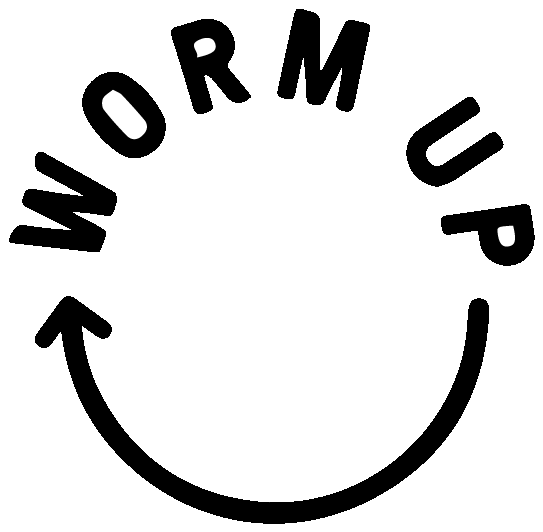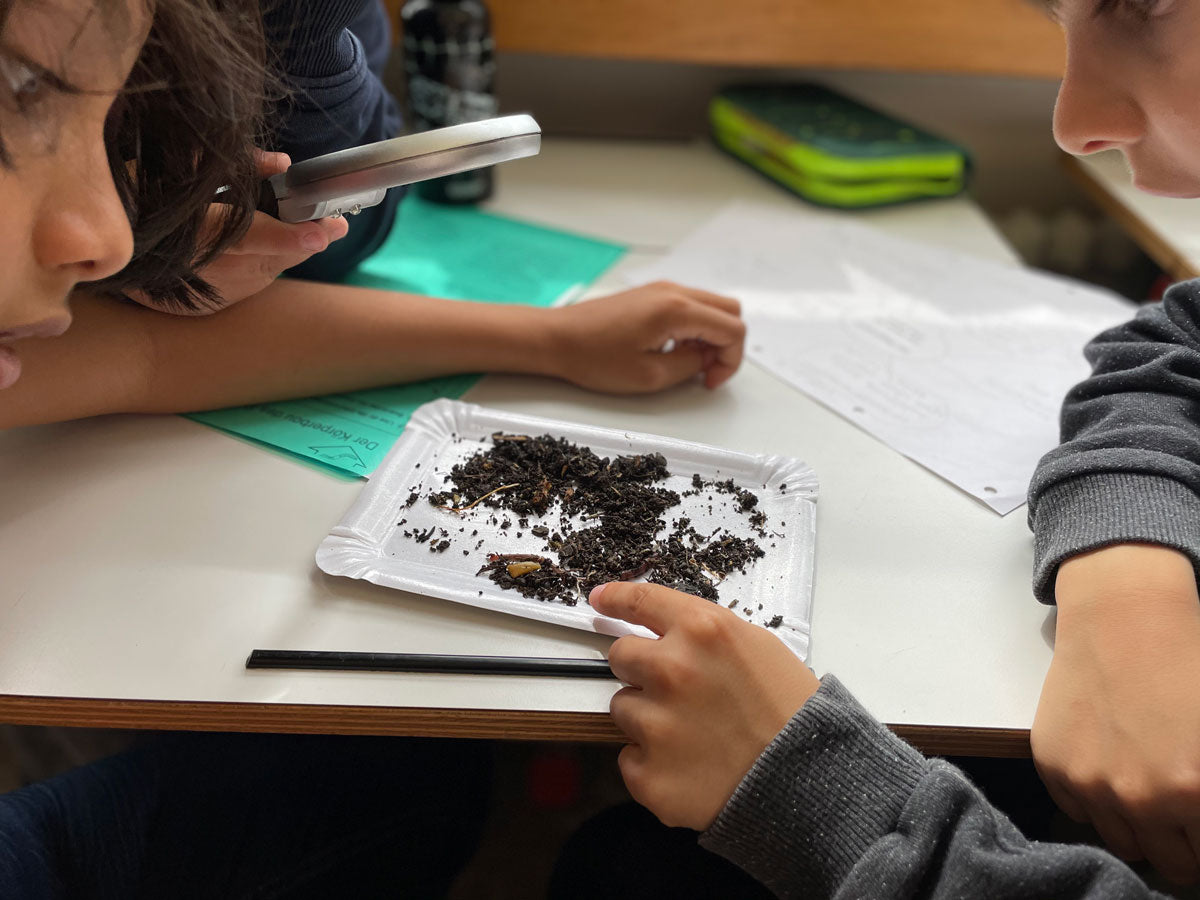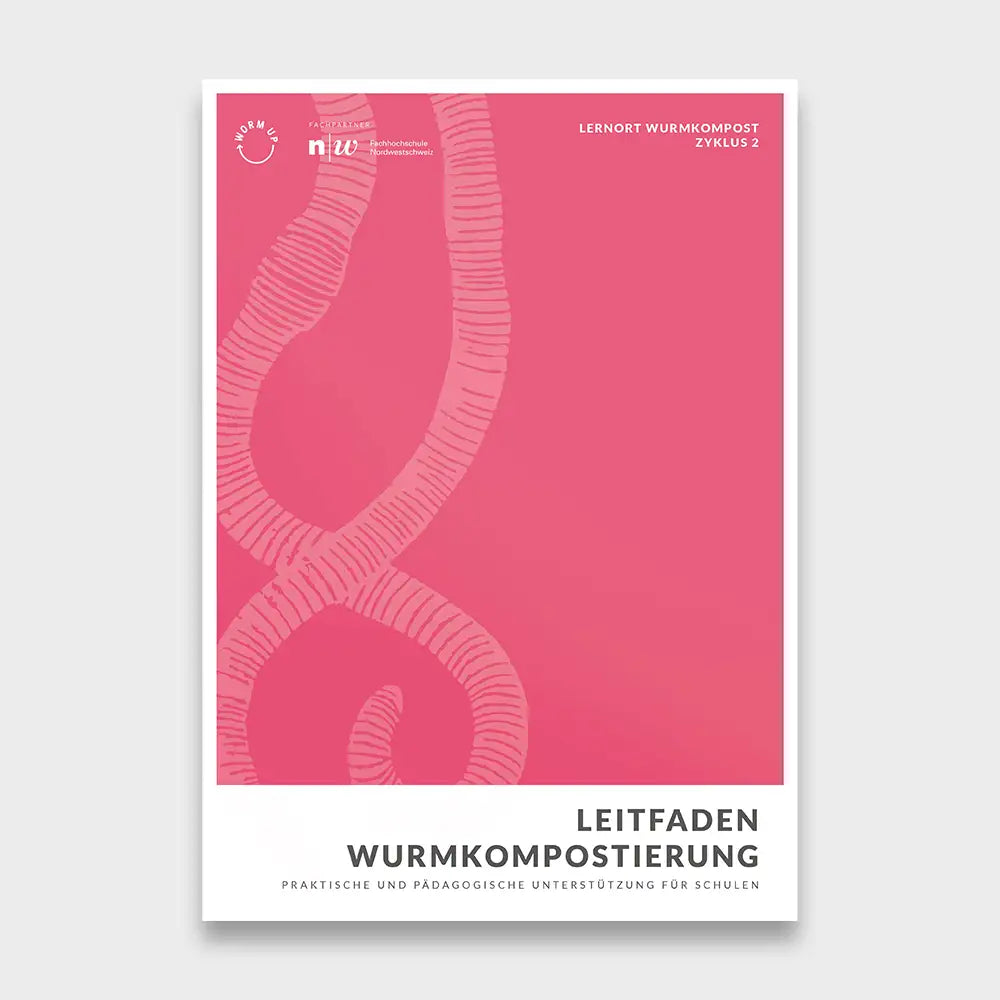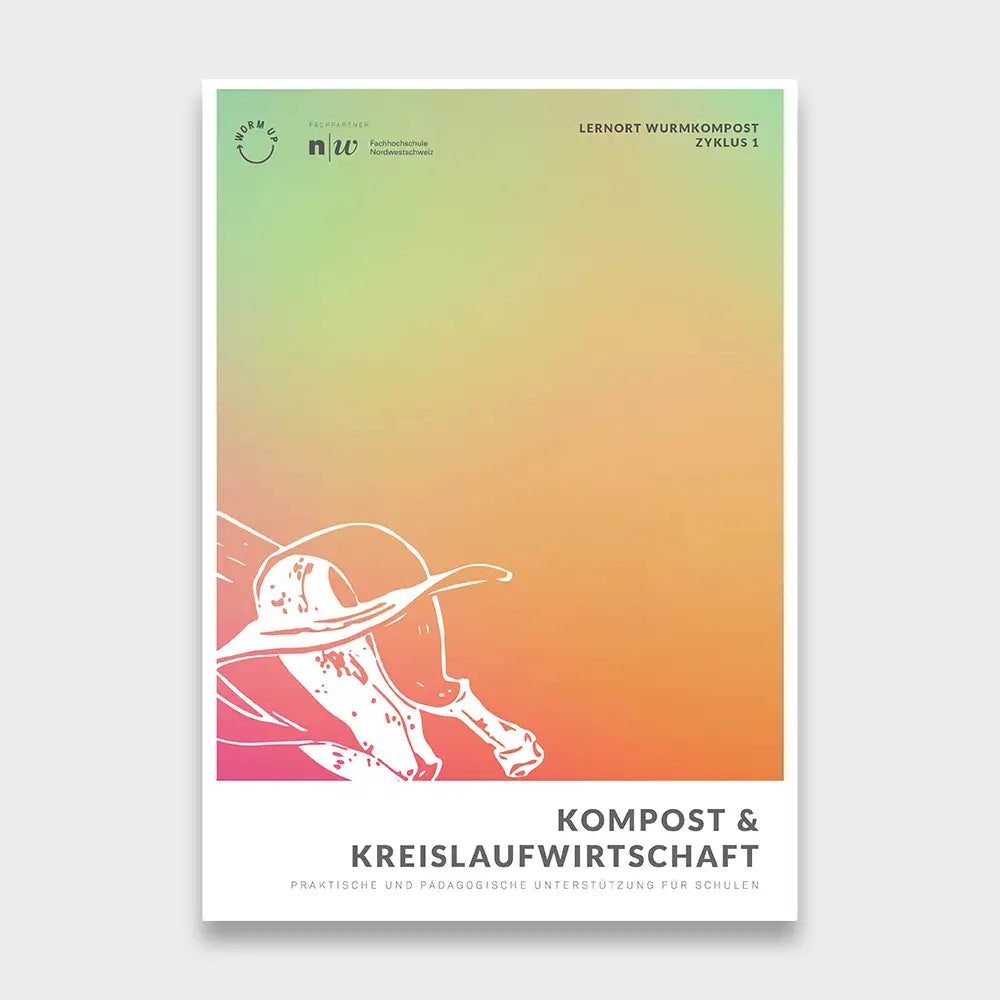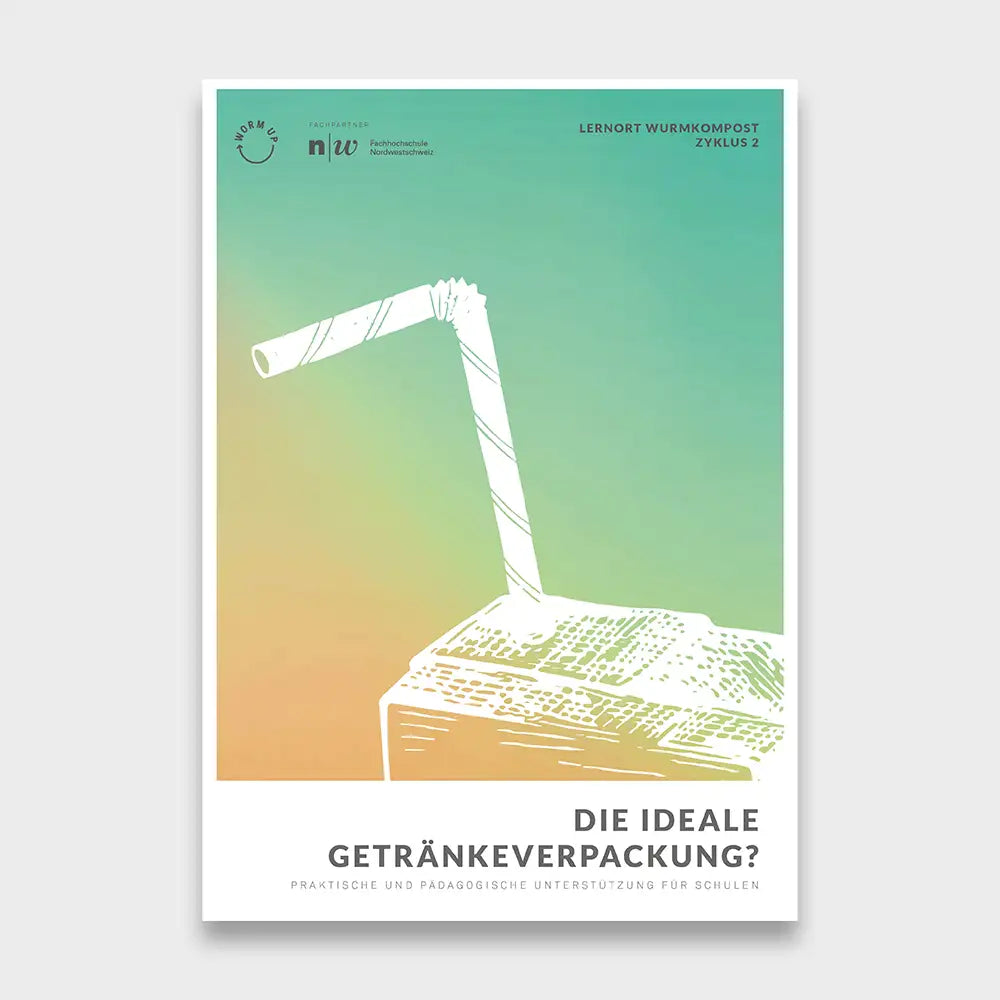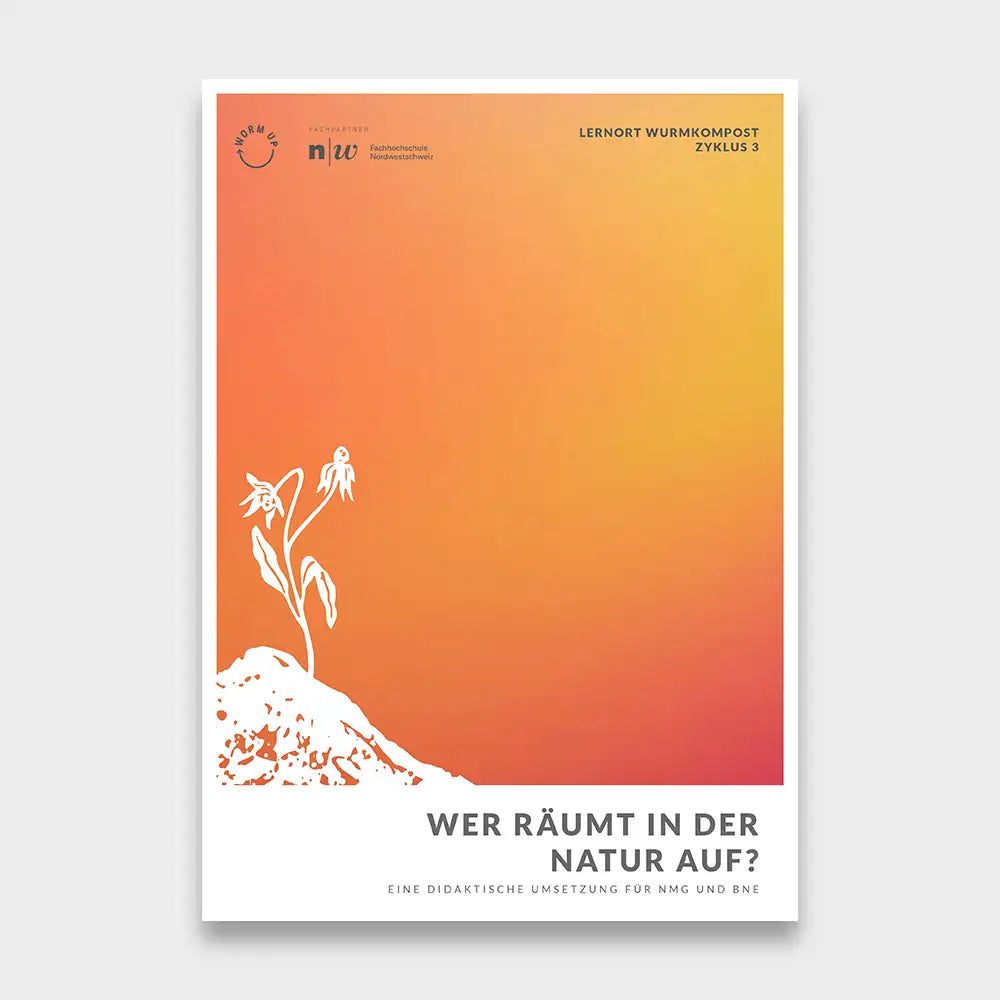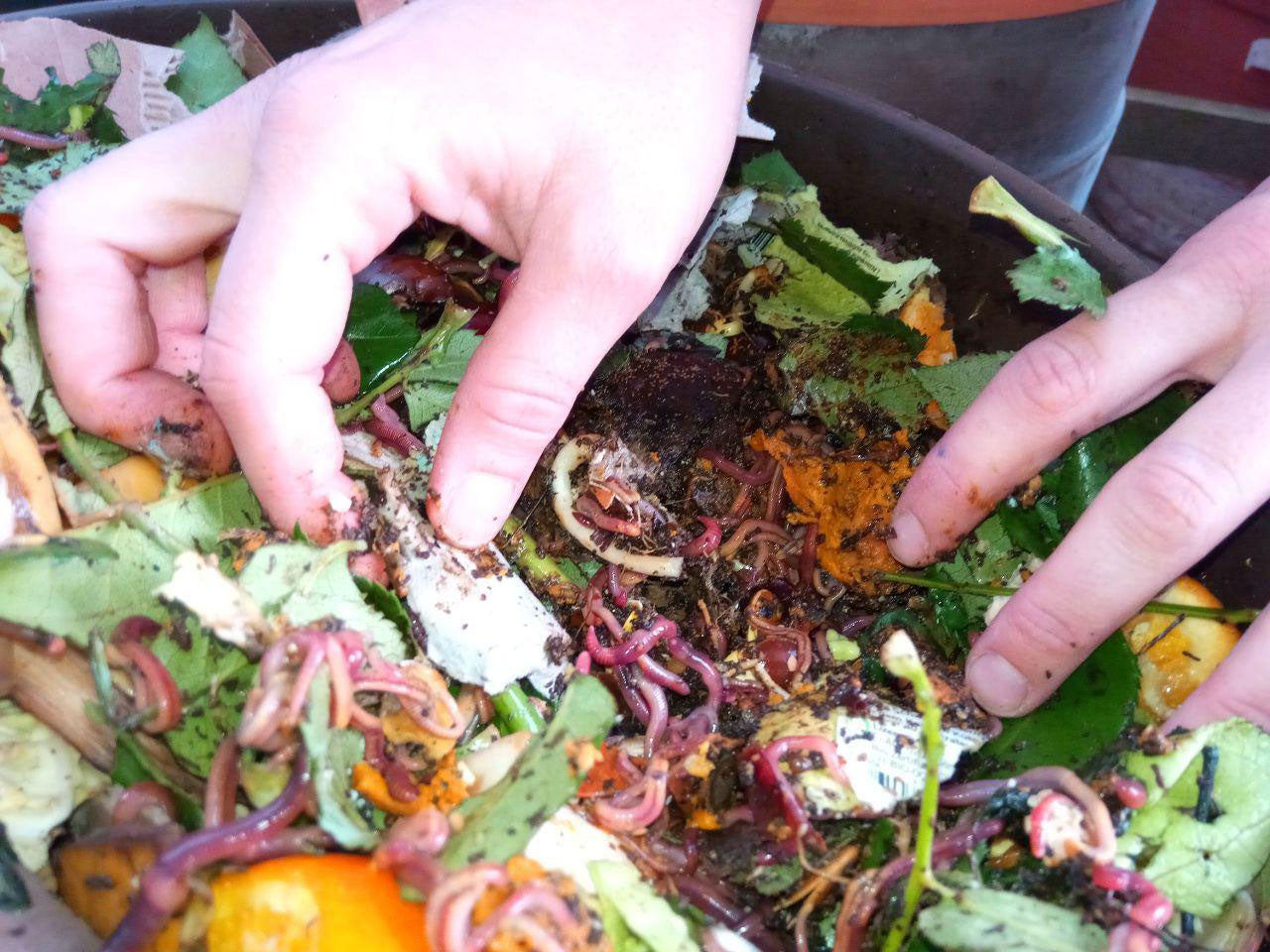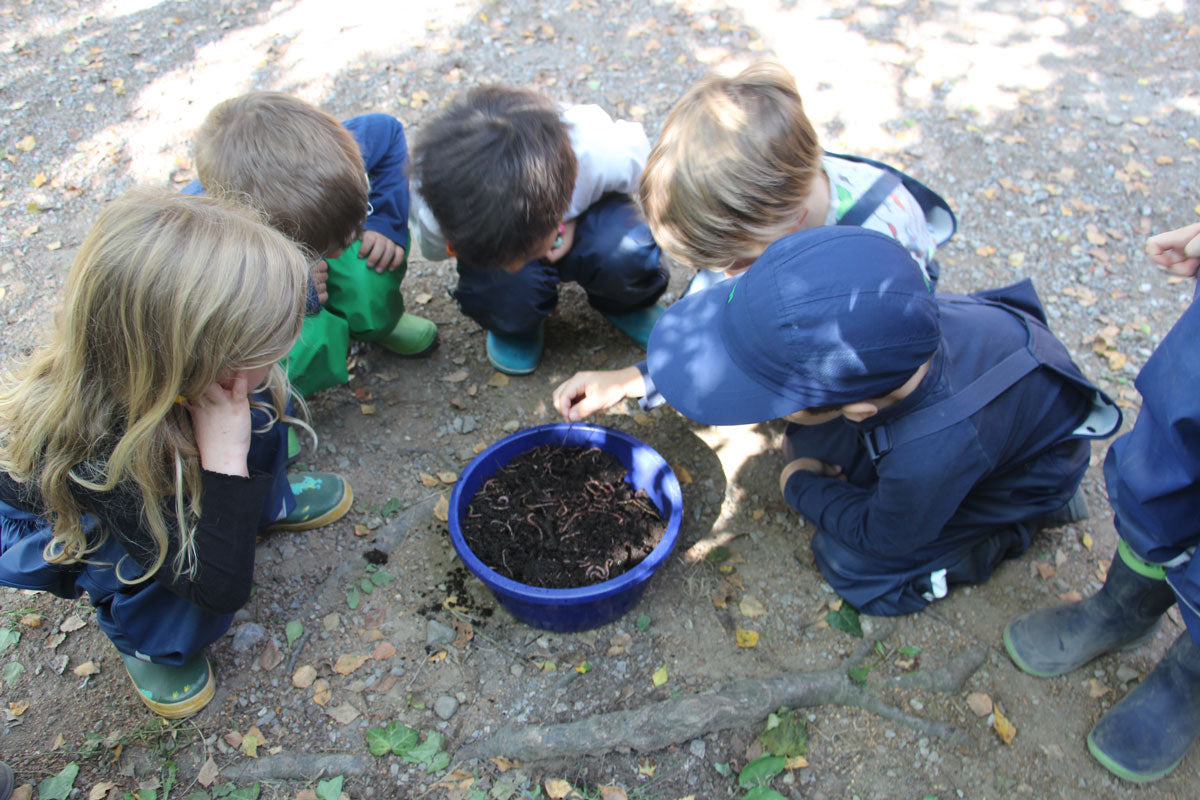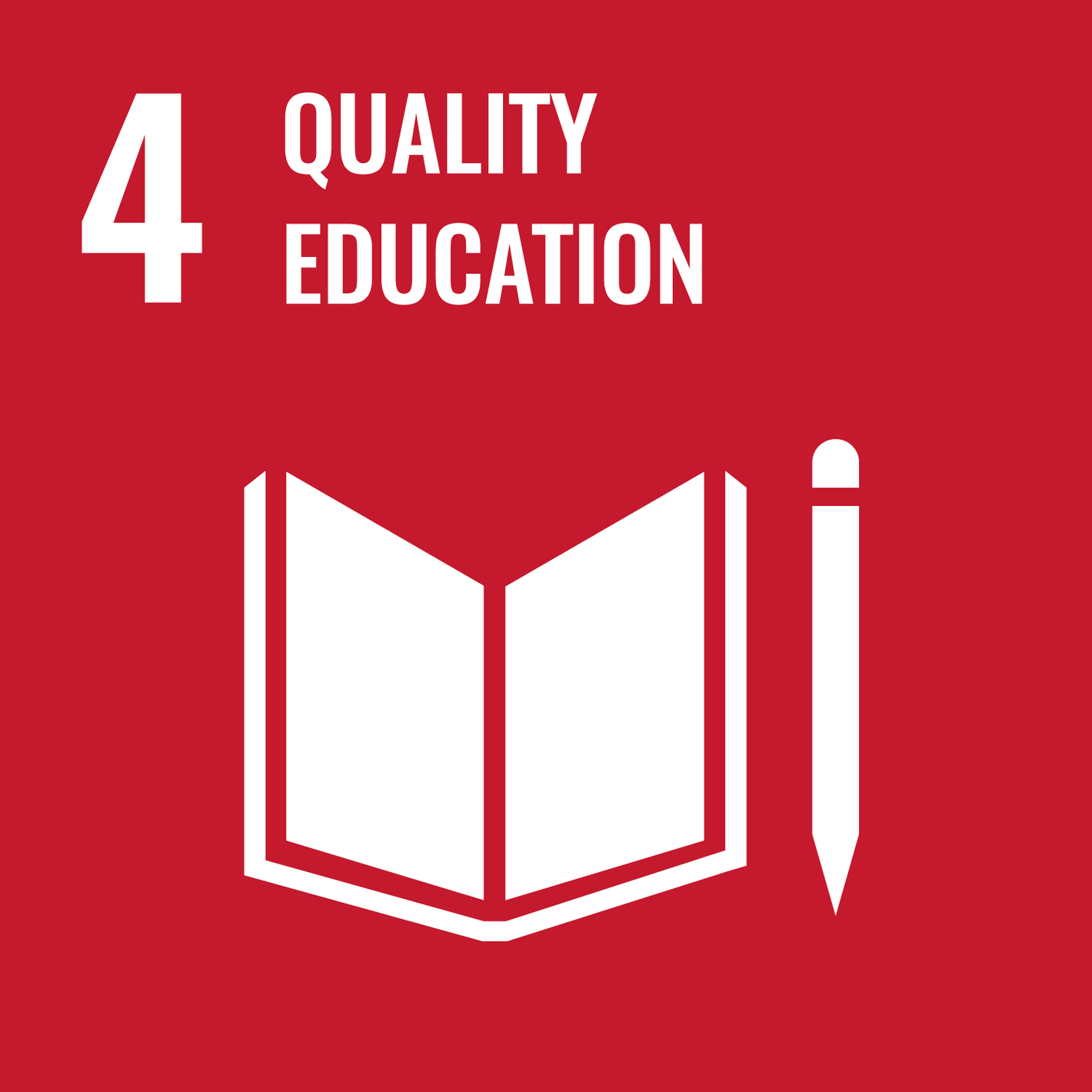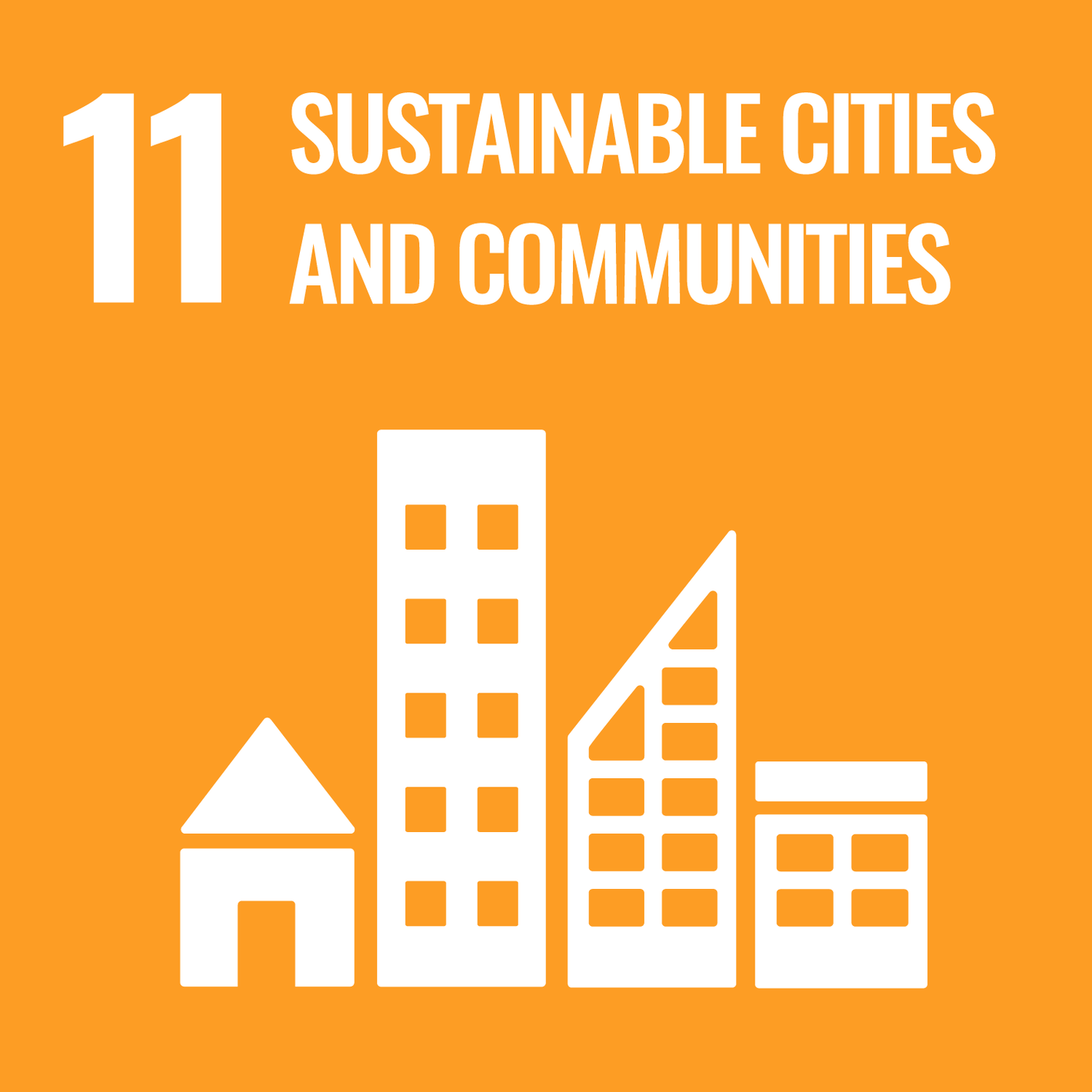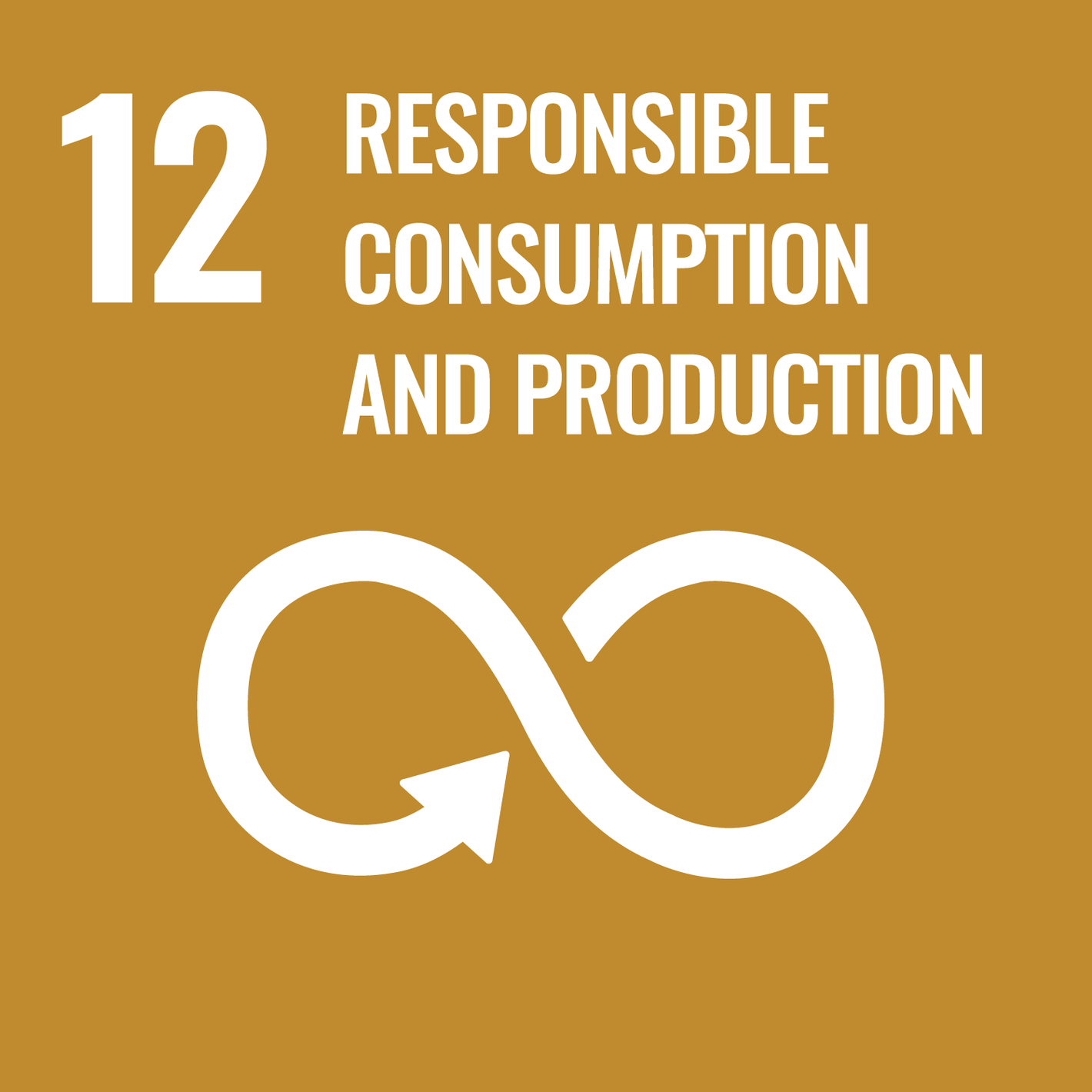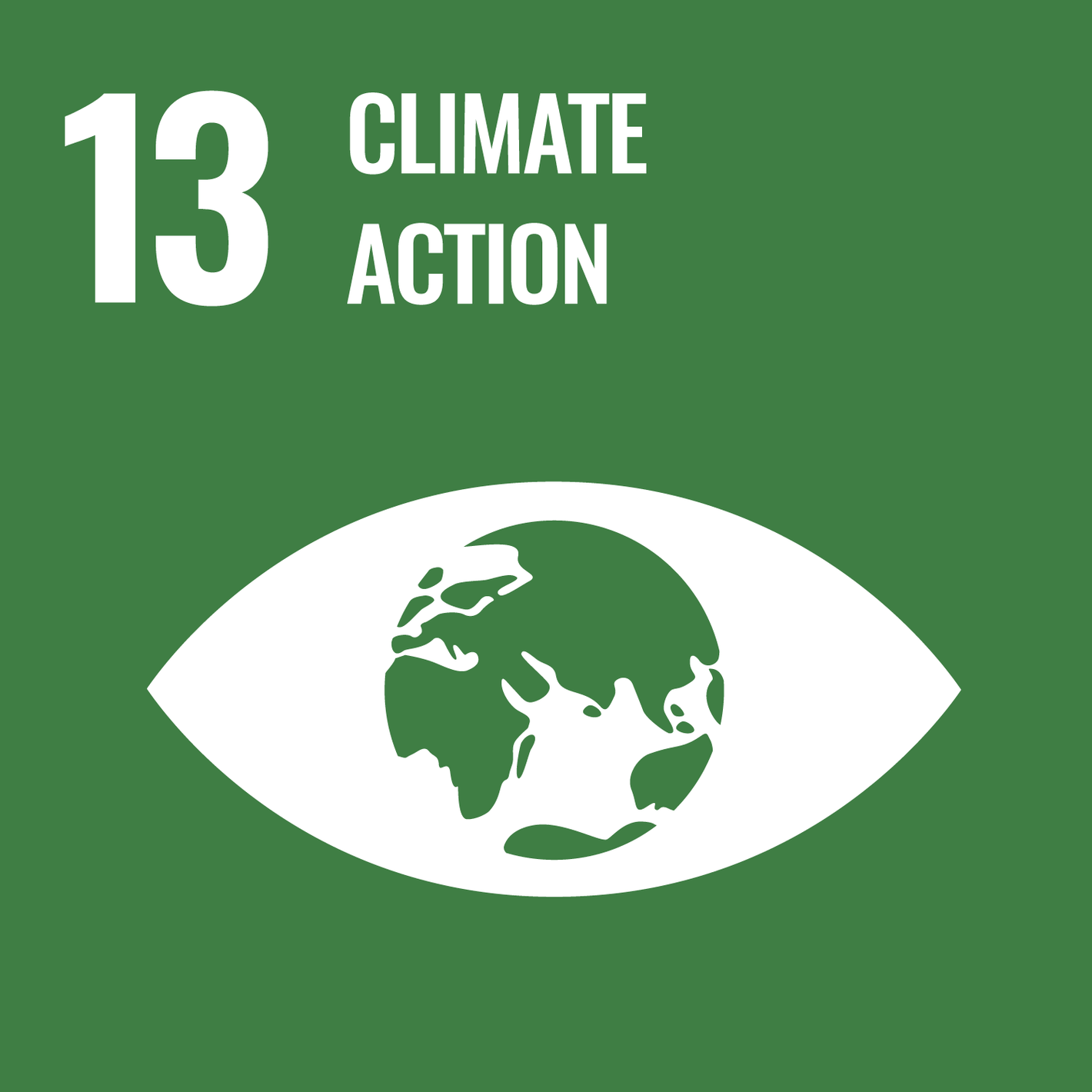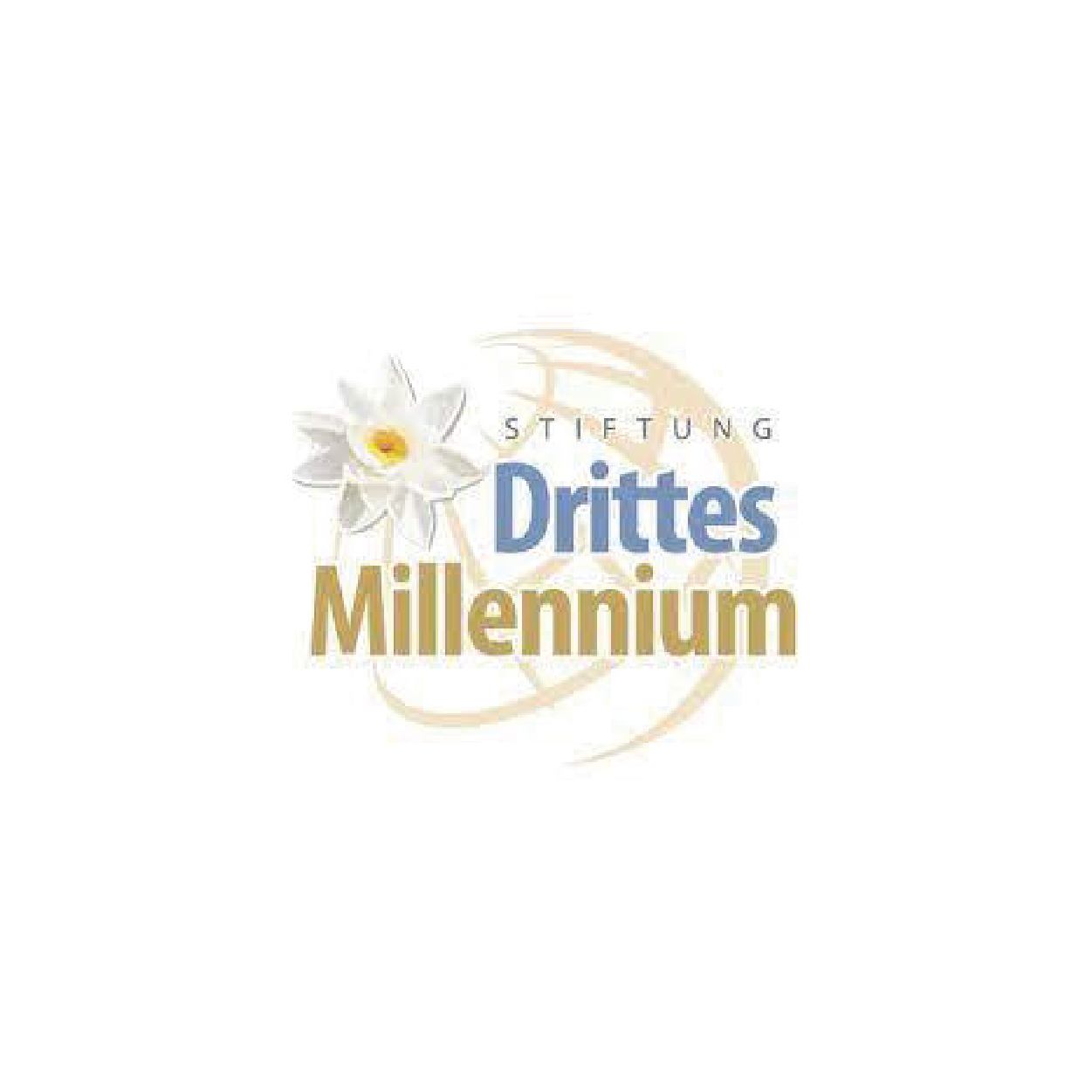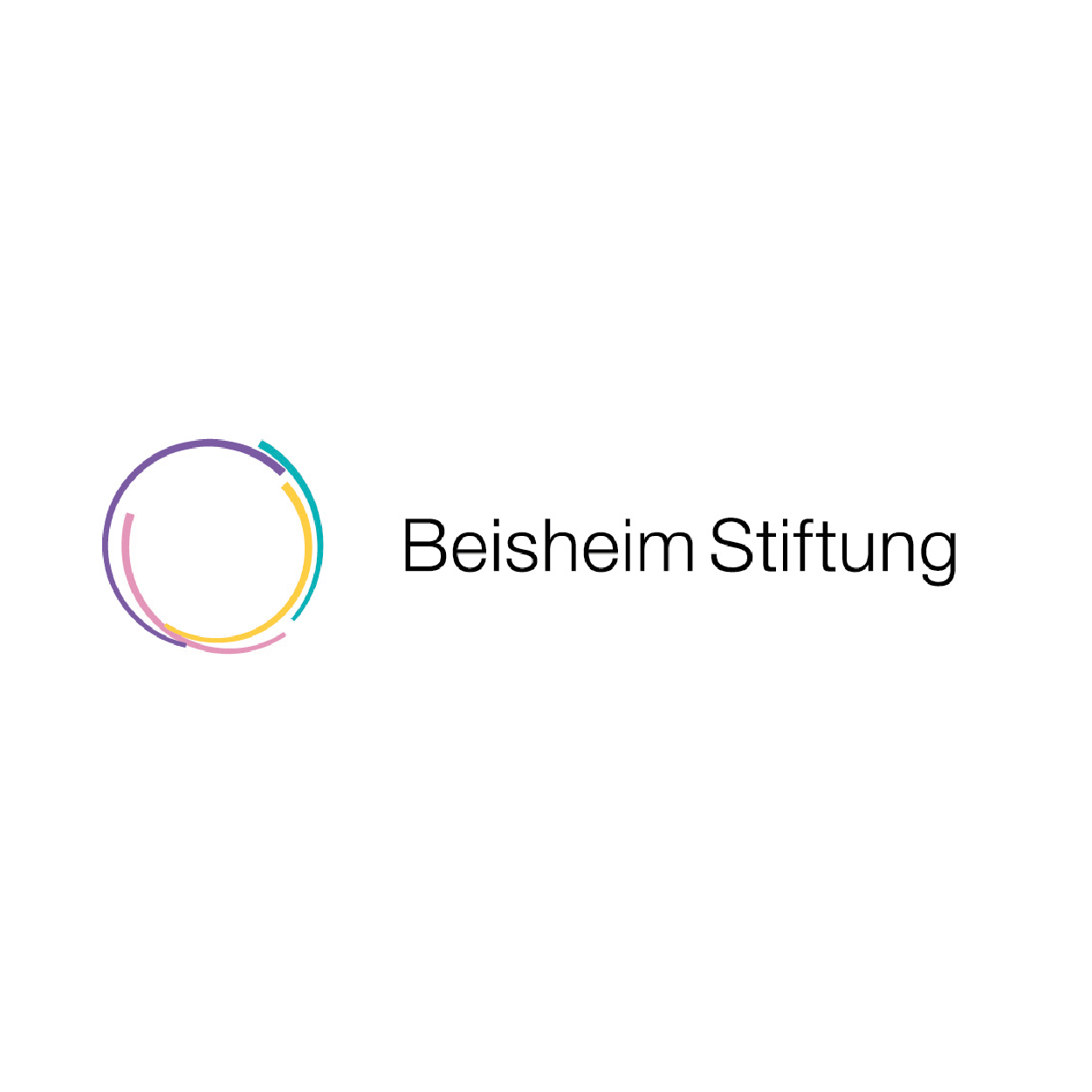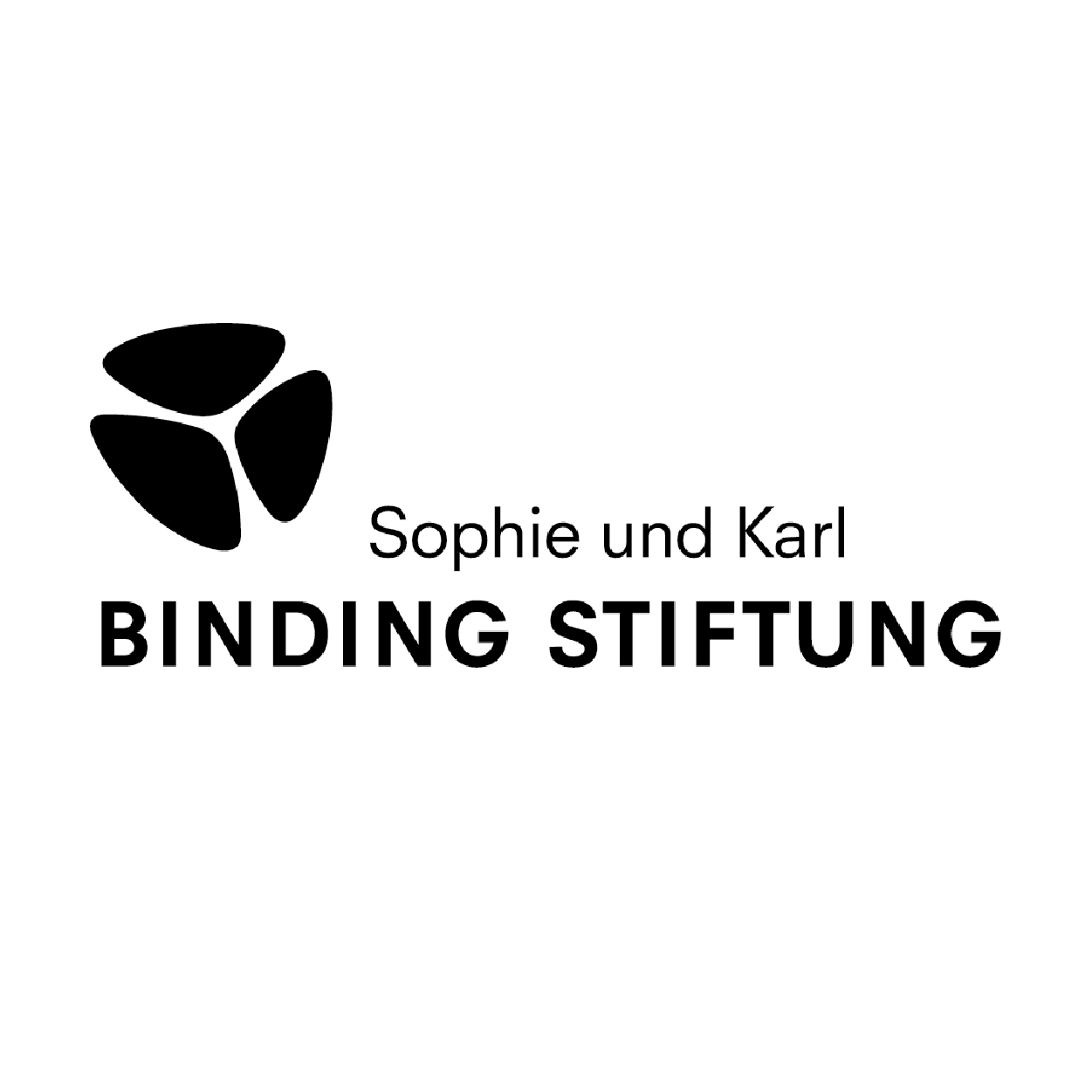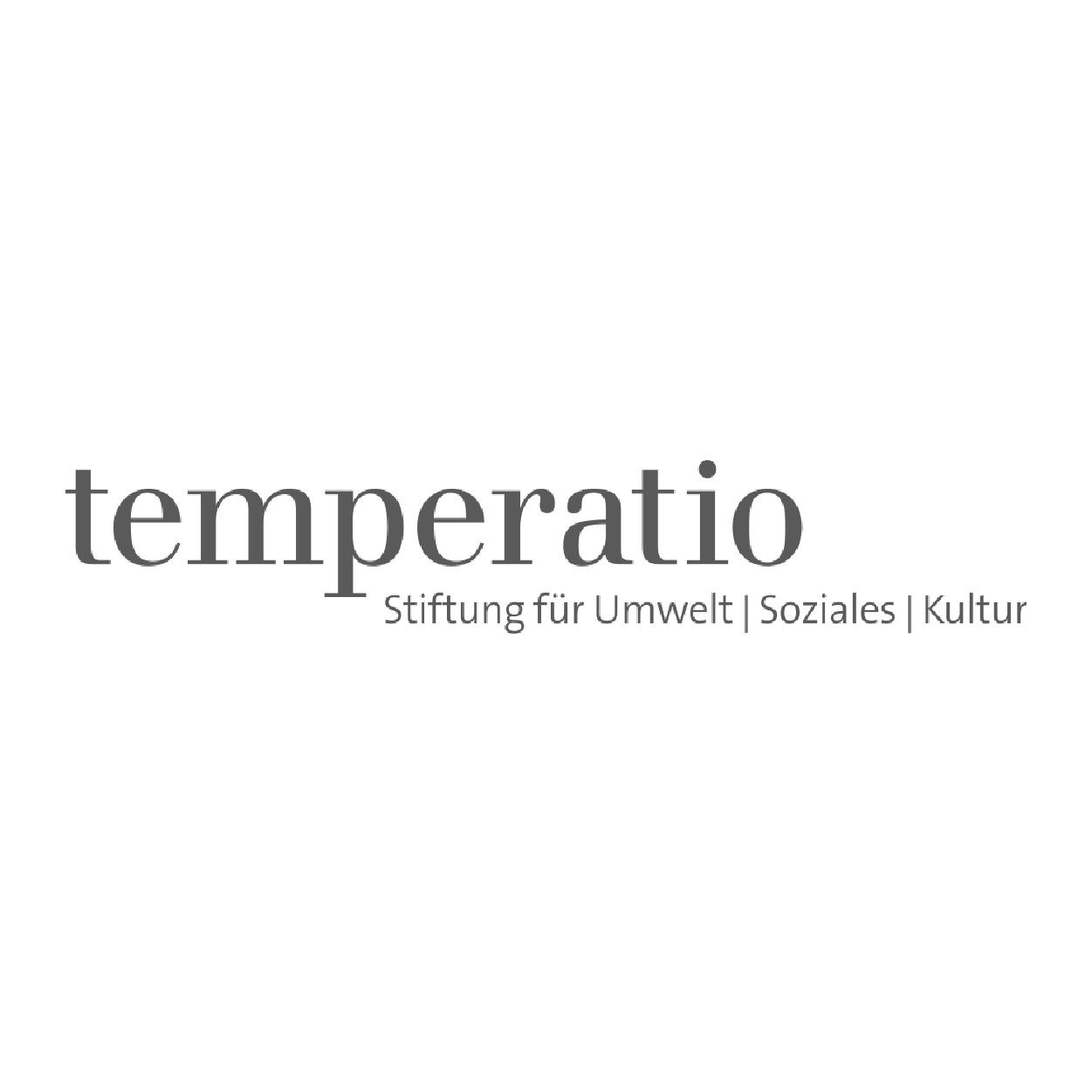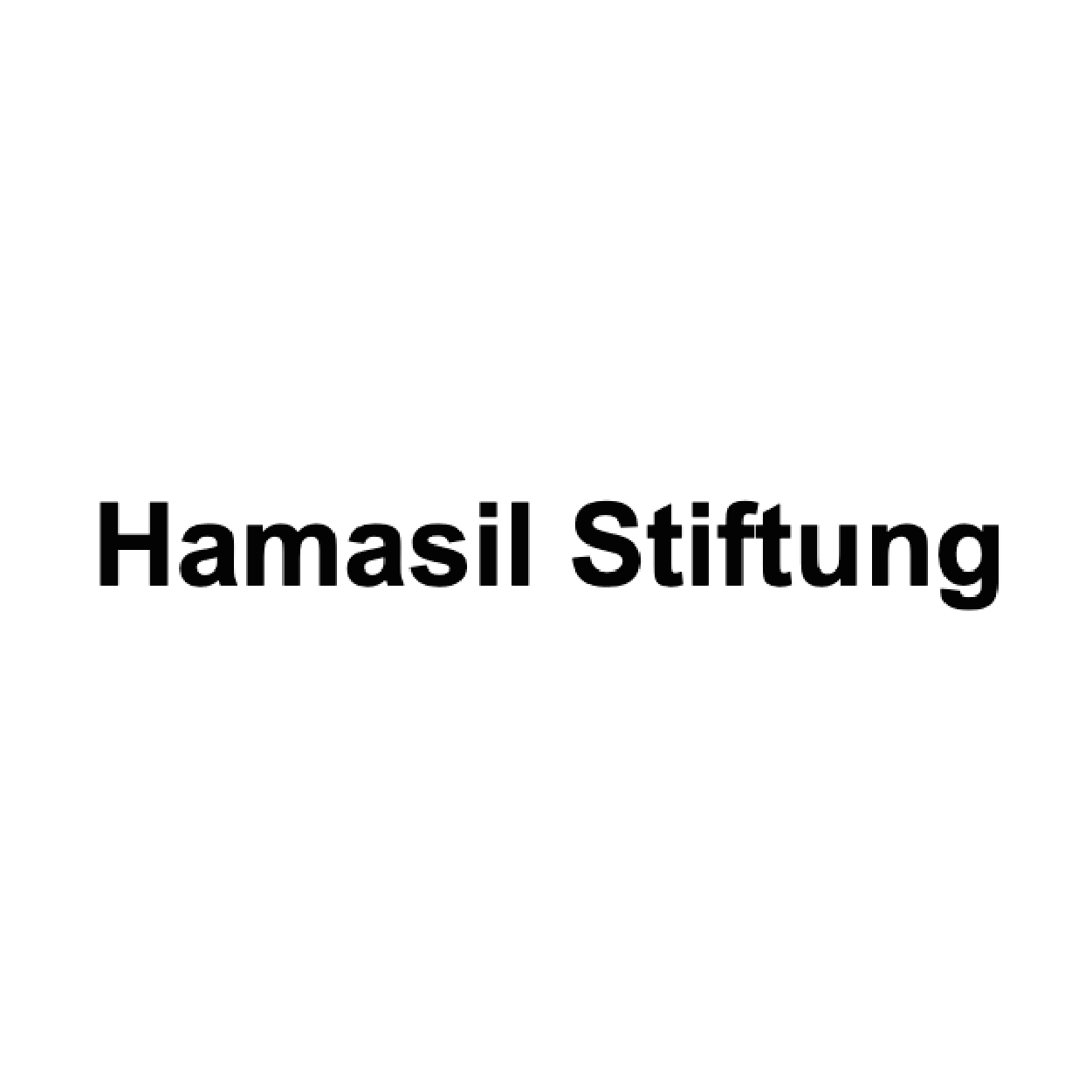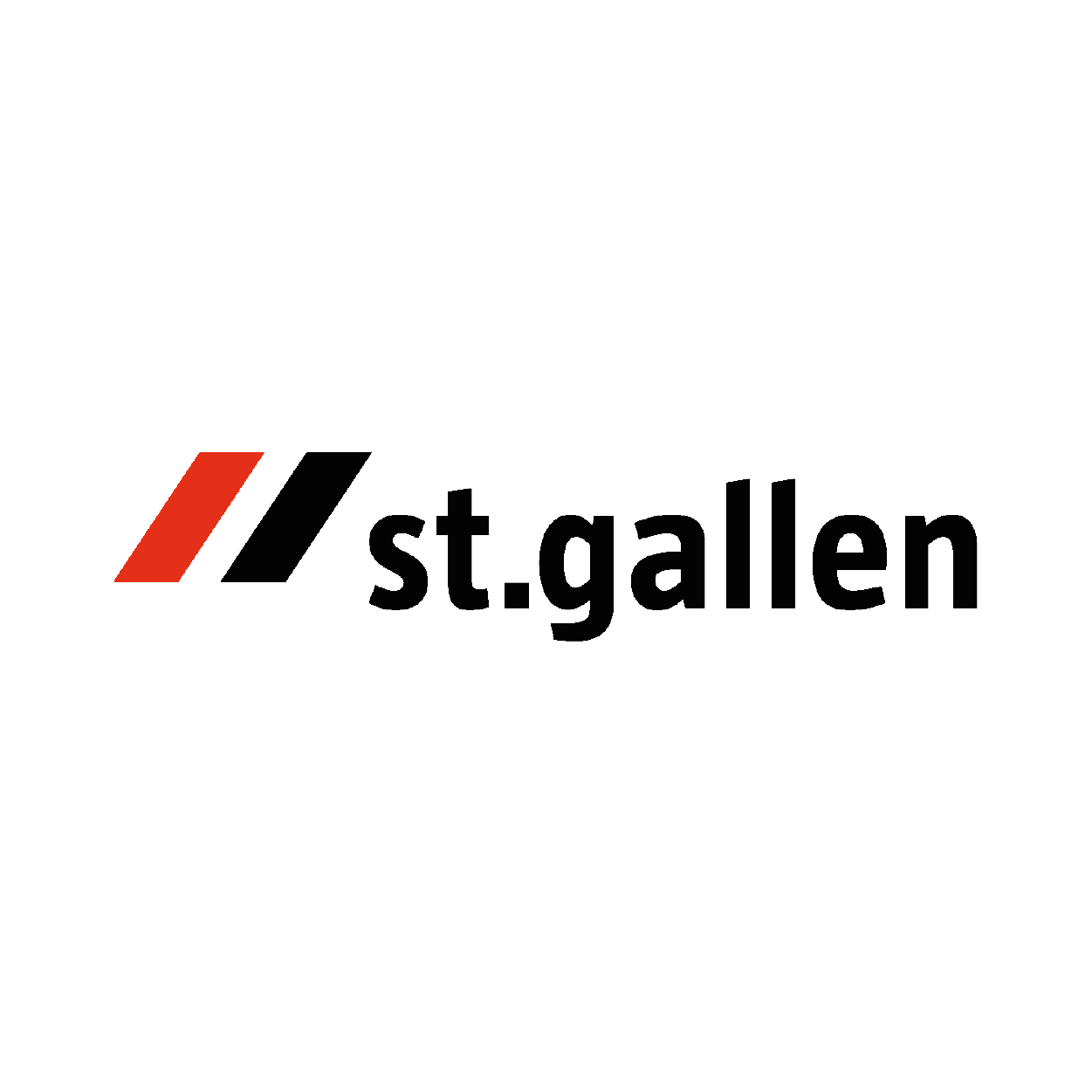Learning Site Vermicompost
"Learning site worm compost" - the first project at national level to bring the circular economy to life for the generations of today and tomorrow by composting with worms on site.
Aktionskisten – Kreislauf im Schulalltag erleben
Unsere Aktionskisten bringen Nachhaltigkeit und Kreislaufwirtschaft direkt ins Klassenzimmer oder den Schulgarten. Sie sind flexibel einsetzbar und bieten eine anschauliche Ergänzung zum Unterricht, um ökologische Zusammenhänge erlebbar zu machen.
- Aktionskiste für Schulen: Für den Aussenbereich, ideal für Schulgärten und grössere Gruppen.
- Aktionskiste für Schulklassen: Für das Klassenzimmer, mit Materialien zur Wurmkompostierung.
- Experimentier-Set: Für alle mit eigenem Komposter, die spannende Experimente durchführen möchten.
-
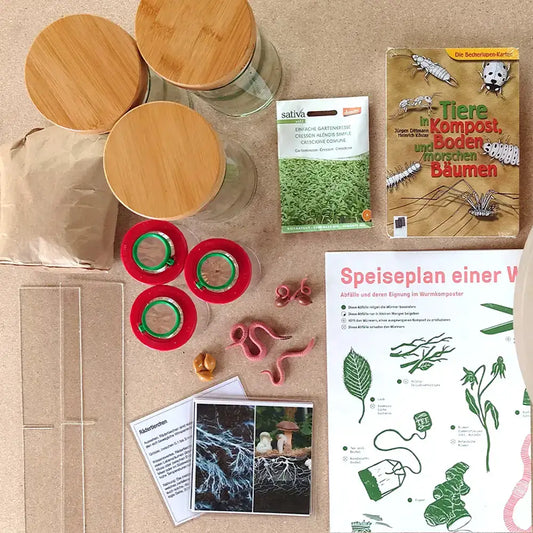 Sold outRegular price CHF 139.00Regular priceUnit price per
Sold outRegular price CHF 139.00Regular priceUnit price per
Unterrichtsmaterialien
Von éducation21 geprüft und im Katalog der empfehlenswerten BNE-Lernmedien aufgeführt. Die Dokumente stehen in digitaler Form gratis zur Verfügung.
Was ist ein Wurmkompost? Wie bauen diese Würmer unser Grüngut zu Kompost um? Welche Materialien können in einem Kompost abgebaut werden und welche nicht? Und wie macht das unsere Gemeinde – gibt es kompostierbare Getränkepackungen, oder was genau läuft in unserem Boden ab?
Ausgehend vom Ansetzen und Unterhalten eines Wurmkomposts erfahren die Lernenden stufengerecht wichtige Grundlagen über das Leben von Würmern und anderen Bodenlebewesen. Sie gehen dem Stoffkreislauf von Grüngut und anderen organischen Materialien auf den Grund, machen Rottungsversuche, welche die Notwenigkeit von Recycling für bestimmte Stoffe aufzeigen, oder werden sich der Wichtigkeit eines gesunden Bodens bewusst.
Why vermicomposting in schools?
The federal government is demanding simple and practicable solutions for the implementation of the public educational mandate and the education for sustainable development (ESD) contained therein.
Vermicomposting is an ideal starting point for overcoming many current challenges - it enables access to and experience of complex processes.
It impressively manages to arouse enthusiasm for the recycling and upcycling of organic waste, odorless and easy-care at the same time. The awakening of emotions with the help of worms allows the participants to experience with all their senses how valuable, fertile humus is created from organic waste. You will experience action-oriented what it means to close a cycle and to be able to actively participate.
Warum Wurmkompostierung an Schulen?
Vom Bund werden einfache und praktikable Lösungen zur Umsetzung des öffentlichen Bildungsauftrags und der darin enthaltenen Bildung für nachhaltige Entwicklung (BNE) gefordert.
Die Wurmkompostierung ist ein idealer Ansatzpunkt zur Bewältigung vieler aktueller Herausforderungen - sie ermöglicht den Zugang zu und das Erleben von komplexen Prozessen.
Sie schafft es eindrucksvoll, Begeisterung für das Re- und Upcycling von organischen Abfällen zu wecken, geruchsneutral und pflegeleicht zugleich. Das Wecken von Emotionen mit Hilfe von Würmern lässt die Teilnehmenden mit allen Sinnen erleben, wie aus organischen Abfällen wertvoller, fruchtbarer Humus entsteht. Sie erfahren handlungsorientiert, was es heisst, einen Kreislauf zu schliessen und sich aktiv beteiligen zu können.
Stimmen aus der Praxis
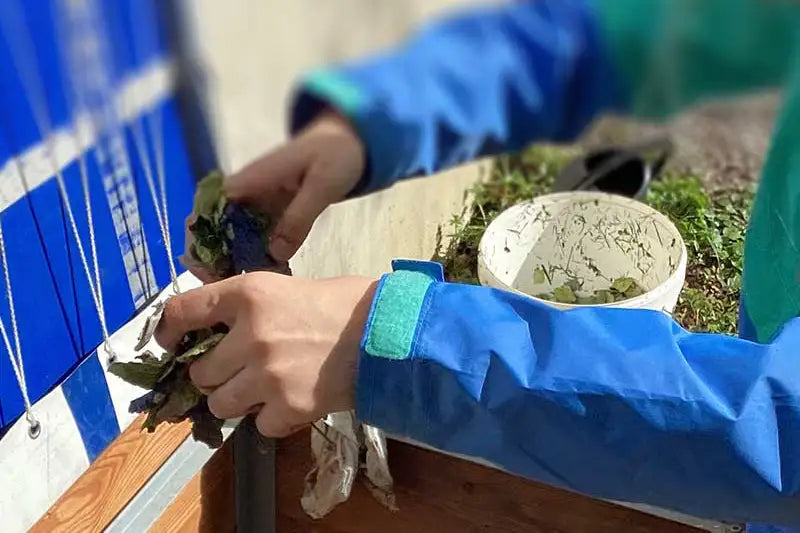
Lebendiger Unterricht mit Wurmkompost
«Dank des Wurmkomposters wird der Unterricht lebendig. Unsere Schülerinnen und Schüler erleben hautnah, wie aus allerlei organischen Stoffen wertvoller Dünger entsteht. Das fasziniert nicht nur im Fach NMG, sondern bietet auch vielfältige Anknüpfungspunkte für andere Fächer. Die Kinder entwickeln ein Verständnis für ökologische Zusammenhänge und lernen eine sinnvolle Alternative zur Müllentsorgung kennen.»
Simon Peter, Primarschule Zeihen (AG)
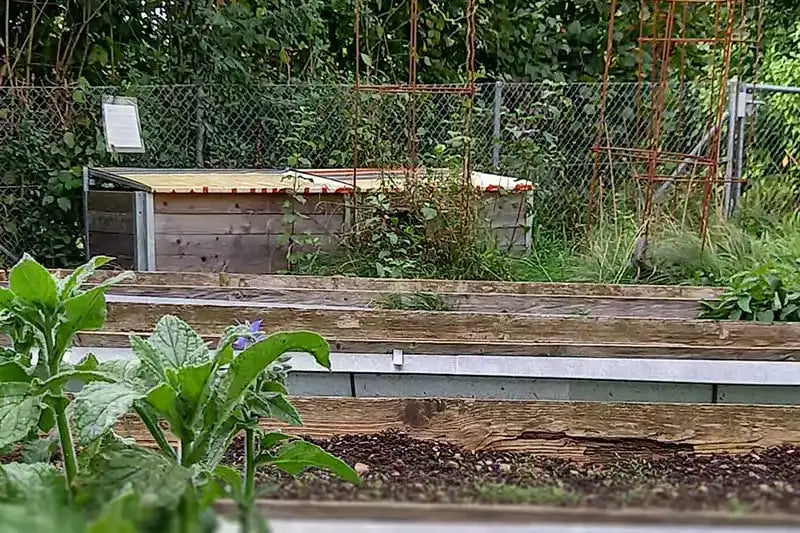
Begeisterung für Würmer
«Seit dem Wurmkompost-Kurs haben wir grosse Freude an unserem Komposter. Restlos alle Kinder lassen sich für die Würmer begeistern. Im Unterricht und im Schulgarten können wir Themen wie Littering, Recycling und Gesundheit direkt erleben und anwenden.»
Claudia Kyburz, Primarschule Othmarsingen
Project goals
The aim of «Learning Site Vermicompost» is to
- vermicomposting will be made accessible to school classes in the long term.
- Teachers are supported in implementing ESD lessons that promote learning.
- the school is supported in the development and establishment of the learning location vermicompost.
- Connections to the topics of circular economy, littering and how to deal with it are created.
- Future teachers - students at the PH FHNW - are taught the opportunities, challenges and implementation options of worm composting within the framework of ESD.
- The amount of organic waste produced is reduced.
Long-term goals (impact)
Strengthening the awareness and sensitization of society for the topics of waste, composting, soil, nutrients along the entire process chain from producers to retailers to consumers.
The circular economy is promoted.
Establishment of composting knowledge in NMG and BNE lessons (teaching implementation for cycle 1-3).
"Learning Site Vermicompost" contributes to ESD and the Sustainable Development Goals (SDGs).
Sustainable Development Goals (SDGs) , to which "Learning Site Vermicompost" makes a contribution (from left to right): Quality education (SDG 4), Sustainable cities and settlements (SDG 11), Sustainable production and consumption (SDG 12), Measures to protect the climate ( SDG 13).
CORNER POINTS «LEARNING SITE VERMICOMPOST»
Applicants
Association WormUp
Duration
September 2022 – December 2023
Primary Audience
300 pupils, 100 FHNW students, 30 teachers
Project partner
PH FHNW
Participants
at least 15 schools
Keywords
Waste, ESD, soil, circular economy, composting, compost, consumption, food waste, nutrients
Vermicomposting in the context of ESD
Concept
"Lernort worm compost" takes up the ESD principles formulated by éducation21 and
offers great potential for ESD teaching:

Vision orientation
Vermicomposting is an example of a functioning circular economy and promotes creative and innovative thinking for new approaches to challenges.
Networked thinking
Through "Lernort Wormcompost" the students deal with a wide variety of areas such as the environment, health, resources, economy and consumption. The practical implementation enables the linking of knowledge from different departments and the identification of individual interests. The class has to think together, starting with how to deal with waste, through the process of biological conversion, to their own consumption behavior. Through all these and numerous other considerations, the students take on a wide variety of perspectives, weigh them up against each other and make their own decisions.
Participation and empowerment
The students have a direct influence on the process:
They decide what to feed the worms and what not. They come into contact with various actors such as the caretaker of the school or a local garden center, take responsibility and bear the consequences of their own actions. Together with other classes and their teachers, they work out a feeding plan and vote on it in a democratic process. Together with the teachers, the classes are responsible for recycling the organic waste produced by the schools.
Equality of Opportunity
Through democratic processes and joint decision-making, all students can get involved in the implementation. In self-chosen groups, the students can delve into an area and contribute their knowledge to the group.
Long-term perspective
Vermicomposting is becoming an integral part of the schoolhouse environment and is used by classes year after year. By reducing organic waste and upgrading it to valuable worm castings as fertilizer and soil conditioner, added value is generated for the school over a longer period of time. In this way, everyone involved in the project benefits.
Value reflection and action orientation
In the school classes, their own consumption habits are tracked down and compared with each other. The decision as to which waste is suitable for vermicompost and which is not is discussed and determined in class. This means that different objects end up in the composter, which are broken down at different speeds or not at all. The students gain new insights, can question the decisions they have made and strengthen their mutual understanding. With the worms arousing emotions, the students learn and experience with all their senses how organic waste is turned into valuable humus. In an iterative process throughout the school year, open questions from the students are examined and answered. Your thoughts and insights can also be transported to other areas of society. What are we throwing in the trash? Can we reduce our own waste?
Discovering learning
What do we do with our organic waste? What happens to it? How can we recycle our waste? The students deal with their own initial questions in cooperative forms of learning, individual work, presentations, combined with research work and through input from the teacher. They combine their existing knowledge with the new one and consolidate it sustainably through practical experience. They can implement and contribute their newly acquired knowledge directly.
